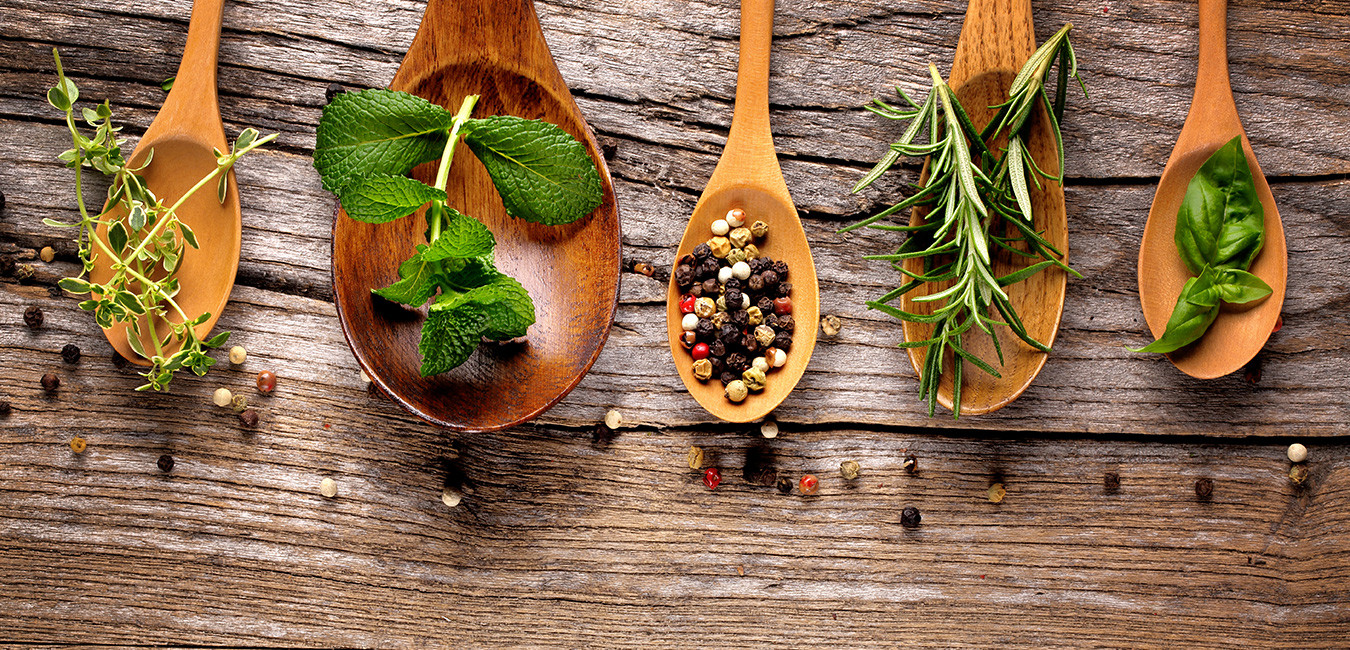Used as a natural “medicine” for thousands of years, certain herbs and spices really do have amazing health benefits, including fighting chronic inflammation, which has been linked to a wide range of conditions, from heart disease to diabetes, Alzheimer’s disease, and even cancer, according to new studies. Here’s a look at four delicious seasonings that rank as anti-inflammatory standouts.
Curcumin:
The compound that gives the Indian spice turmeric (used in curry) its yellow hue, curcumin “shows strong anti-oxidative and anti-inflammatory activities when used as a remedy for the prevention and treatment of chronic diseases,” including cardiovascular disease (CVD), according to a new review published in the journal Molecules. The authors report that curcumin has been shown to improve blood flow to people with blocked coronary arteries and may also be “a novel heart failure therapy.” The golden spice also boosts oral health: A recent clinical trial found that 1 percent solution of curcumin (in water) was nearly as effective for killing mouth bacteria as a standard dental rinse (0.2 percent chlorhexidine gluconate), reducing such symptoms as bleeding gums, redness, inflammation and amount of dental plaque in patients with periodontal (gum) disease.
Cloves:
Popular in Mediterranean and Indian cuisine, cloves rank as the best antioxidant spice, according to research published in Flavor and Fragrance Journal. The aromatic spice also has powerful anti-inflammatory effects. A recent study published in Circulation reported that taking either cloves or curcumin in capsule form significantly lowered levels of oxidized LDL cholesterol (OxLDL) in the blood. Oxidation of LDL cholesterol is one of the earlier steps in the development of atherosclerosis (plaque buildup in the arteries that can lead to a heart attack or stroke) and is thought to spark inflammation. High levels of OxLDL more than quadruple risk for heart disease in men and triple it for metabolic syndrome, studies show. OxLDL levels can be measured with a simple blood test.
Thyme:
Essential oil from thyme blocks the inflammatory COX-2 enzyme in a similar way as resveratrol, the compound associated with the cardiovascular benefits of red wine, according to a study published in the Journal of Lipid Research. The researchers compared the effects of several commercially available essential oils, including those from clove, fennel and bergamot (the flavoring in Earl Grey tea). Of all of the oils tested, thyme was the most powerful, reducing levels of COX-2 by nearly 75 percent, compared to a reduction of about 25 percent for the other oils.
Garlic:
This pungent herb contains anti-inflammatory sulphuric compounds and antioxidants with cardiovascular benefits. In a 2013 clinical trial that included 79 patients with uncontrolled high blood pressure, those who took two capsules daily of garlic extract experienced an 11.8 mmHg drop in their systolic blood pressure over eight weeks, compared to those who took a placebo capsule. The findings were published in the European Journal of Clinical Nutrition. “Our trial suggests aged garlic extract to be an effective and tolerable treatment in uncontrolled hypertension, and may be considered as a safe adjunct treatment to conventional antihypertensive therapy,” the researchers concluded. In a separate study, presented at the American Heart Association Scientific Sessions, scientists from Emory University reported that a component of garlic oil may release protective compounds that benefit patients after a heart attack, during cardiac surgery, or as a treatment for heart failure.

